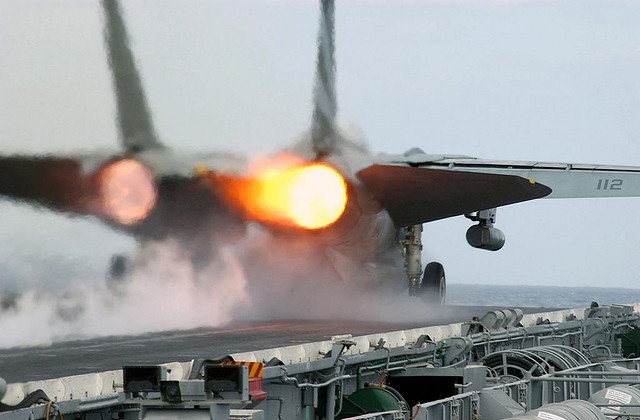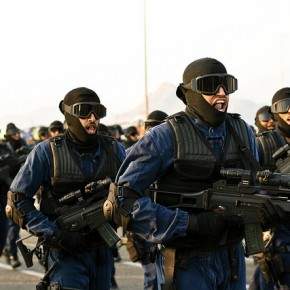Because of the gravity of the situation in Iraq and of its consequences for Iraq, the United States, the region, and the world, the Iraq Study Group has carefully considered the full range of alternative approaches for moving forward. We recognize that there is no perfect solution and that all that have been suggested have flaws. The following are some of the more notable possibilities that we have considered.
1 . Precipitate Withdrawal
Because of the importance of Iraq, the potential for catastrophe, and the role and commitments of the United States in initiating events that have led to the current situation, we believe it would be wrong for the United States to abandon the country through a precipitate withdrawal of troops and support.
A premature American departure from Iraq would almost certainly produce greater sectarian violence and further deterioration of conditions, leading to a number of the adverse consequences outlined above. The near-term results would be a significant power vacuum, greater human suffering, regional destabilization, and a threat to the global economy. Al-Qaeda would depict our withdrawal as a historic victory.
If we leave and Iraq descends into chaos, the long-range consequences could eventually require the United States to return.
2. Staying the Course
Current US policy is not working, as the level of violence in Iraq is rising and the government is not advancing national reconciliation. Making no changes in policy would simply delay the day of reckoning at a high cost. Nearly 100 Americans are dying every month. The United States is spending $2 billion a week. Our ability to respond to other international crises is constrained. A majority of the American people are soured on the war.
This level of expense is not sustainable over an extended period, especially when progress is not being made. The longer the United States remains in Iraq without progress, the more resentment will grow among Iraqis who believe they are subjects of a repressive American occupation. As one US official said to us, “Our leaving would make it worse … The current approach without modification will not make it better.”
3. More Troops for Iraq
Sustained increases in US troop levels would not solve the fundamental cause of violence in Iraq, which is the absence of national reconciliation. A senior American general told us that adding U.S. troops might temporarily help limit violence in a highly localized area. However, past experience indicates that the violence would simply rekindle as soon as US forces are moved to another area.
As another American general told us, if the Iraqi government does not make political progress, “all the troops in the world will not provide security.” Meanwhile, America’s military capacity is stretched thin: we do not have the troops or equipment to make a substantial, sustained increase in our troop presence. Increased deployments to Iraq would also necessarily hamper our ability to provide adequate resources for our efforts in Afghanistan or respond to crises around the world.
4. Devolution to Three Regions
The costs associated with devolving Iraq into three semiautonomous regions with loose central control would be too high. Because Iraq’s population is not neatly separated, regional boundaries cannot be easily drawn. All eighteen Iraqi provinces have mixed populations, as do Baghdad and most other major cities in Iraq.
A rapid devolution could result in mass population movements, collapse of the Iraqi security forces, strengthening of militias, ethnic cleansing, destabilization of neighboring states, or attempts by neighbouring states to dominate Iraqi regions. Iraqis, particularly Sunni Arabs, told us that such a division would confirm wider fears across the Arab world that the United States invaded Iraq to weaken a strong Arab state.
While such devolution is a possible consequence of continued instability in Iraq, we do not believe the United States should support this course as a policy goal or impose this outcome on the Iraqi state. If events were to move irreversibly in this direction, the United States should manage the situation to ameliorate humanitarian consequences, contain the spread of violence, and minimize regional instability.
The United States should support, as much as possible, central control by governmental authorities in Baghdad, particularly on the question of oil revenues.
Achieving Our Goals
We agree with the goal of US policy in Iraq, as stated by the President: an Iraq that can “govern itself, sustain itself, and defend itself.” In our view, this definition entails an Iraq with a broadly representative government that maintains its territorial integrity, is at peace with its neighbors, denies terrorism a sanctuary, and doesn’t brutalize its own people. Given the current situation in Iraq, achieving this goal will require much time and will depend primarily on the actions of the Iraqi people.
In our judgment, there is a new way forward for the United States to support this objective, and it will offer people of Iraq a reasonable opportunity to lead a better life than they did under Saddam Hussein. Our recommended course has shortcomings, as does each of the policy alternatives we have reviewed.
We firmly believe, however, that it includes the best strategies and tactics available to us to positively influence the outcome in Iraq and the region. We believe that it could enable a responsible transition that will give the Iraqi people a chance to pursue a better future, as well as serving America’s interests and values in the years ahead.
Photographs courtesy of AereiMilitari.org. Published under a Creative Commons License.





